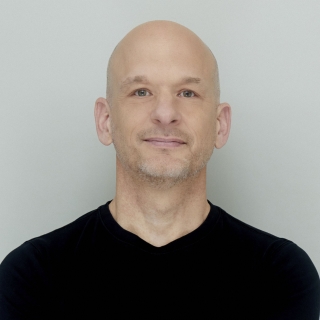
John Gauch ’96, Start-up Fractional COO
John Gauch ’96 is a start-up operator, investor, and former attorney who now works as a fractional chief operating officer, helping founders build enduring, customer-centered companies. After beginning his career at Cravath, Swaine & Moore, John realized he wanted to work side-by-side with entrepreneurs rather than advise from the sidelines. Since then, he has helped launch and scale dozens of ventures across industries—including Axiom and Spartan, each of which created new business categories and shaped their fields. Drawing on the analytical rigor and structured thinking honed at NYU Law, John brings a disciplined yet creative approach to growth and operations, grounded in the belief that lasting success comes from understanding real customer problems and building healthy, resilient organizations to solve them. Read more below.
What made you decide to pursue a career in entrepreneurship/venture capital/startups after NYU Law?
Even before NYU Law, I had a hunch I’d end up in entrepreneurship. I was drawn to the creativity and imagination behind building something from scratch. A family friend who was a VC introduced me to early-stage investing, and that spark stuck. At NYU, I leaned into courses on start-ups and venture finance. I began my career at Cravath, which was an excellent training ground—but I realized quickly that I wanted to work side-by-side with founders, not just advise them. That pull led me to start-ups and eventually into growth and operating roles.
How did NYU Law prepare you for this career?
NYU Law taught me to think critically and systematically—skills that have served me well far beyond legal practice. Issue-spotting, analytical rigor, and resisting premature judgements became essential tools—not just for legal work, but for navigating ambiguity and making sound decisions in fast-moving, uncertain business environments.
Why do you think lawyers find success in this career path?
Legal training develops the muscle for assessing trade-offs, spotting hidden issues, and acting under pressure. Those skills translate directly to building and scaling businesses.
What was the biggest challenge you faced as a lawyer in this career path?
When I moved into early operating roles, I often had to explain how a legal background added value. There’s still a stereotype that lawyers are rigid or risk-averse—so it took some effort to reframe that narrative. But as I took on more growth and operations work, it became apparent how my legal training was a benefit—structured thinking, clear prioritization, and a bias for action translated directly into business outcomes.
What is the most important thing students should do while they are still in law school to prepare themselves for a career in entrepreneurship, in venture capital, or at a start-up?
Get your hands dirty. Join start-up–focused extracurriculars or volunteer with a scrappy, early-stage team. You could also learn a ton by helping run operations at a local small business—especially one led by an ambitious, resourceful owner.
What was the most important lesson you learned in your career thus far?
There are wildly successful companies run by people who create great places to work. There are wildly successful companies run by people who create terrible places to work. You only get one life. Seek out the former. It’s going to be hard work either way—it’s better to build with people you respect and enjoy.

